“My fatherland means more to me than anything else”
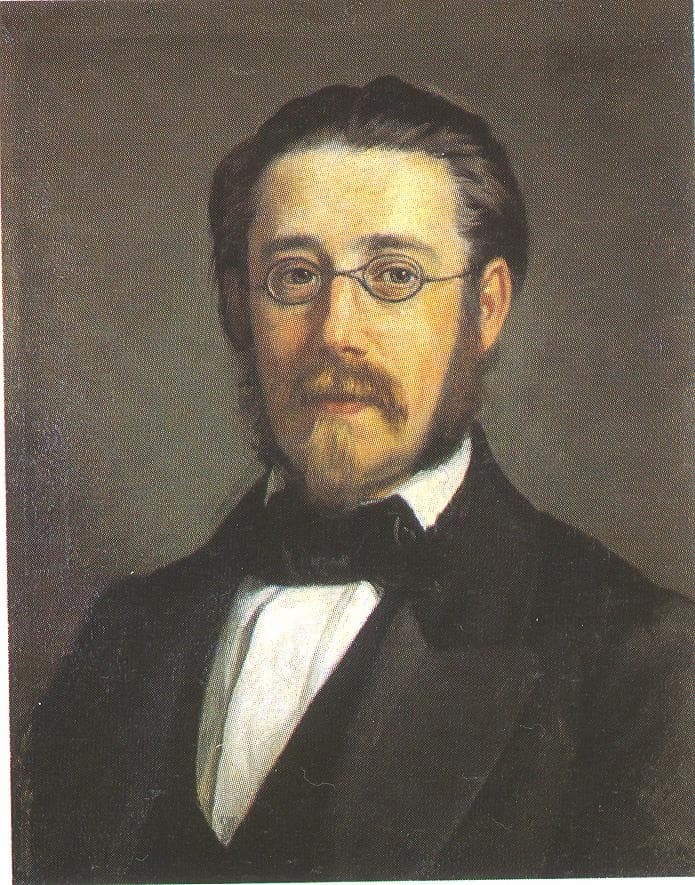
Bedřich Smetana
Bedřich Smetana (1824-84) is widely considered the father of Czech music, and his music posthumously became synonymous with a Czech national musical style. Establishing a Czech classical music canon, Smetana became a national symbol who pioneered a musical style that endured shifting politics, administrations, and ethnicities.
Bedřich Smetana: Vltava
Litomyšl
Bedřich Smetana was born 200 years ago, on 2 March 1824. He was the son of a master brewer who rented a brewery in the city of Litomyšl from the estate owner Count Waldstein. Music was an important part of the family’s domestic and social life, and Bedřich became a gifted pianist who first performed in public at the age of six.
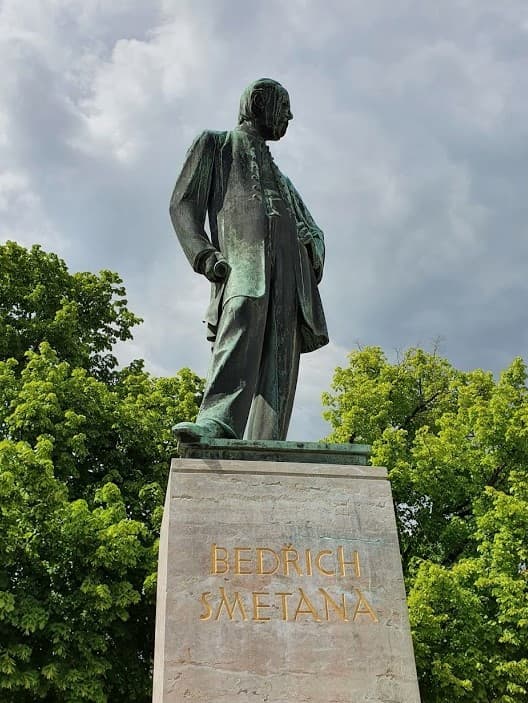
Statue of Smetana in Litomyšl
Like many educated Bohemians, Smetana spoke German rather than Czech, and his musical education and orientation were entirely Germanic. Young Bedřich dabbled in composition, writing dances, and salon pieces for piano. By 1843, he decided to pursue a music career and declared in his diary, “By the grace of God and with his help, I will one day be a Liszt in technique and a Mozart in composition.”
Bedřich Smetana: Piano Sonata in G minor (Jitka Čechová, piano)
Prague
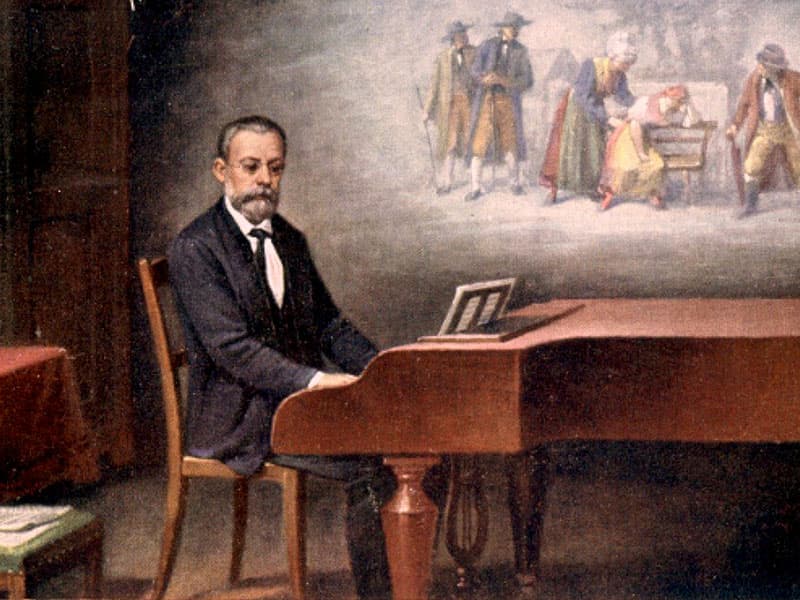
Smetana at the piano
Smetana made his way to Prague in October 1843 and took official composition lesson from Josef Proksch, who operated a music institute in the city. Through Proksch, he received an official recommendation from Johann Friedrich Kittl, the director of the Prague Conservatory at that time. Smetana gained a position as a music teacher to the family of Count Leopold Thun, and he met Liszt, Berlioz, and Robert and Clara Schumann.
Smetana detailed his career goals by writing in 1847, “I want to travel the world as a virtuoso, accumulating money and gaining a public position as a Kapellmeister, conductor, or teacher.” He did embark on a concert tour of Western Bohemia, and upon his return to Prague he opened a music studio, supplementing his income with private lessons to aristocratic families.
Bedřich Smetana: 3 Polkas poetique, Op. 8 (András Schiff, piano)
1848
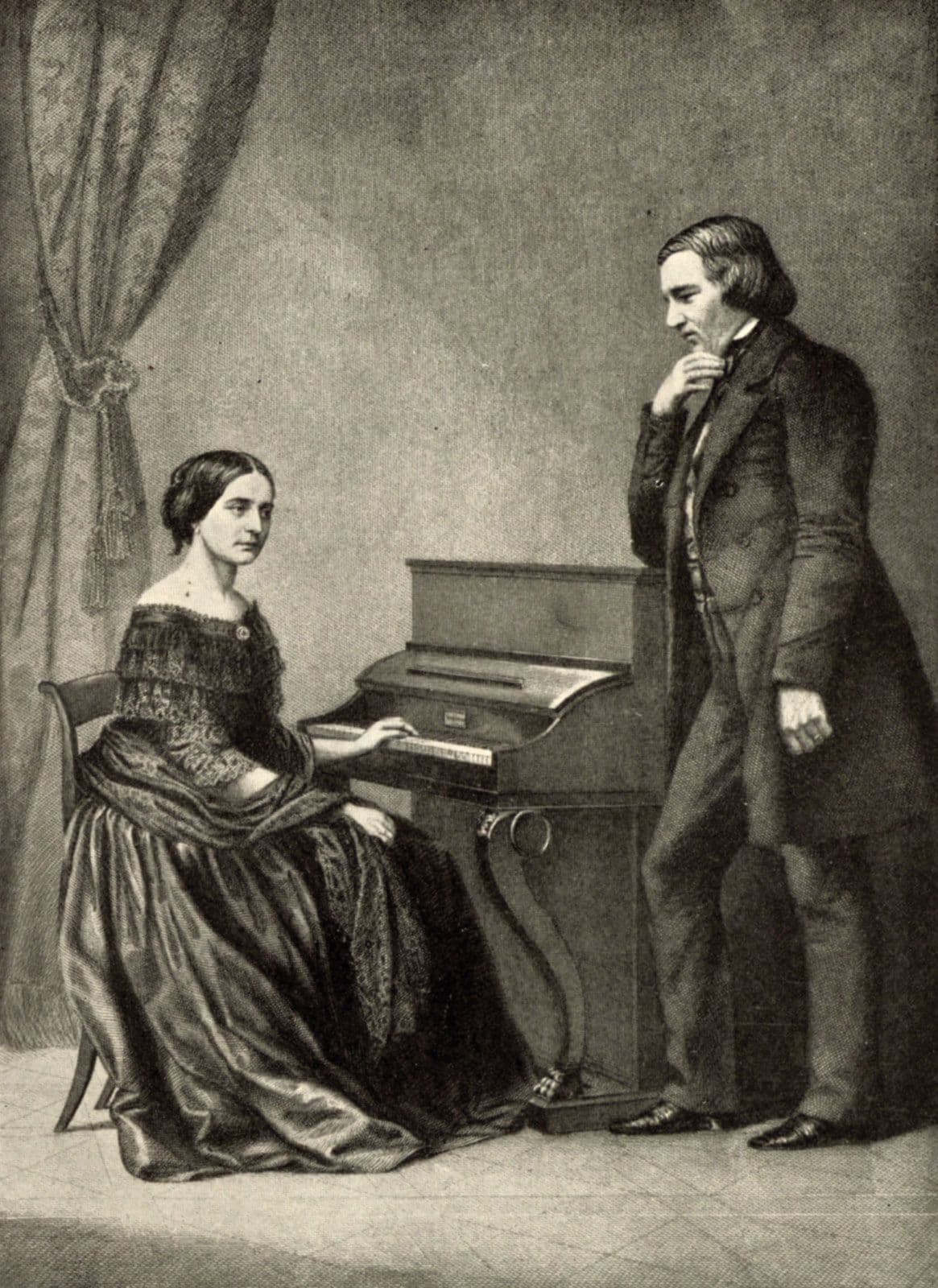
Robert and Clara Schumann, 1850
Political stirrings of national identity and pride ignited a great awakening across Europe in 1848. Smetana was profoundly sympathetic to the patriotic yearnings of his fellow people and urged an end to Habsburg’s absolutist rule. Smetana openly participated in this revolution, and he could barely escape arrest.
The pianist and composer eagerly looked to develop his music career in Prague, completing his first substantial orchestral works. A number of small piano pieces were sent to Clara Schumann and Franz Liszt for feedback, and Smetana participated in both the Beethoven and Mozart celebrations as a pianist. He also dabbled in conducting but dejectedly wrote to his parents in 1856, “Prague did not wish to acknowledge me, so I left it.”
Bedřich Smetana: Piano Trio in G minor, Op. 15
Sweden
Smetana moved to the city of Göteborg to work as a music teacher, and he once again opened a music institute and established a singing school for ladies. He directed several amateur music societies, and he suffered the death of his first wife. While traveling in and around Göteborg, Smetana established an important relationship with Franz Liszt.
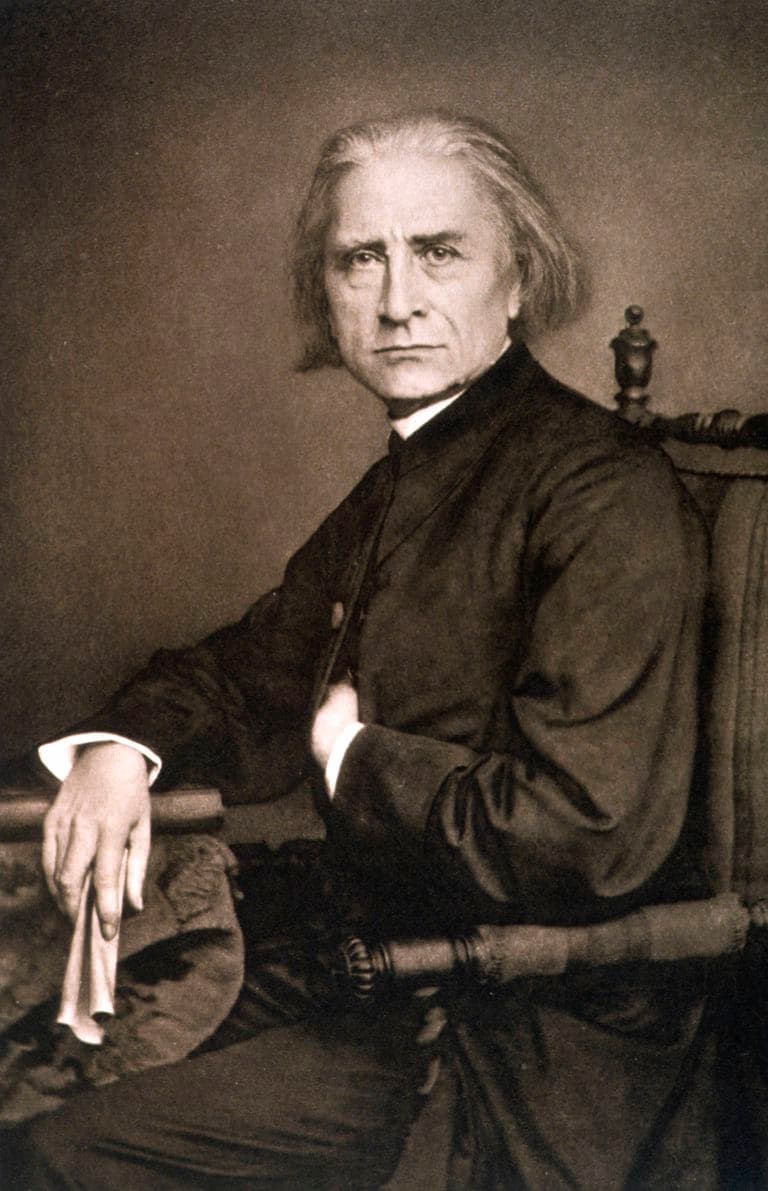
Franz Hanfstaengl: Liszt, 1870
Liszt accepted several Smetana dedications, and Smetana would identify himself as a Liszt advocate throughout the rest of his career. As he wrote to Liszt in 1858, “Regard me as your most passionate supporter of our artistic direction who in word and deed stands for its holy truth and also works of its aims.” By 1861, he was looking to turn his back on Göteborg, writing that “I must attempt finally to publish my compositions and create for myself the opportunity to gain new ideas.”
Bedřich Smetana: Concert Etude in G-sharp minor, Op. 17 “On the Seashore” (Miroslav Sekera, piano)
Return to Prague
Smetana returned to Prague in 1862 and welcomed the conductorship at the new Provisional Theatre, the first professional Czech stage in 1862. During his years in exile, Smetana had honed his compositional direction. He blended the folk songs of his homeland with his personal style and created a poetic musical language. Smetana was inflamed by the rhythms and melodies of Czech folk music without copying them. As he famously said, “By imitating the melodic fall and rhythm of our folk songs, you do not create a national style.”
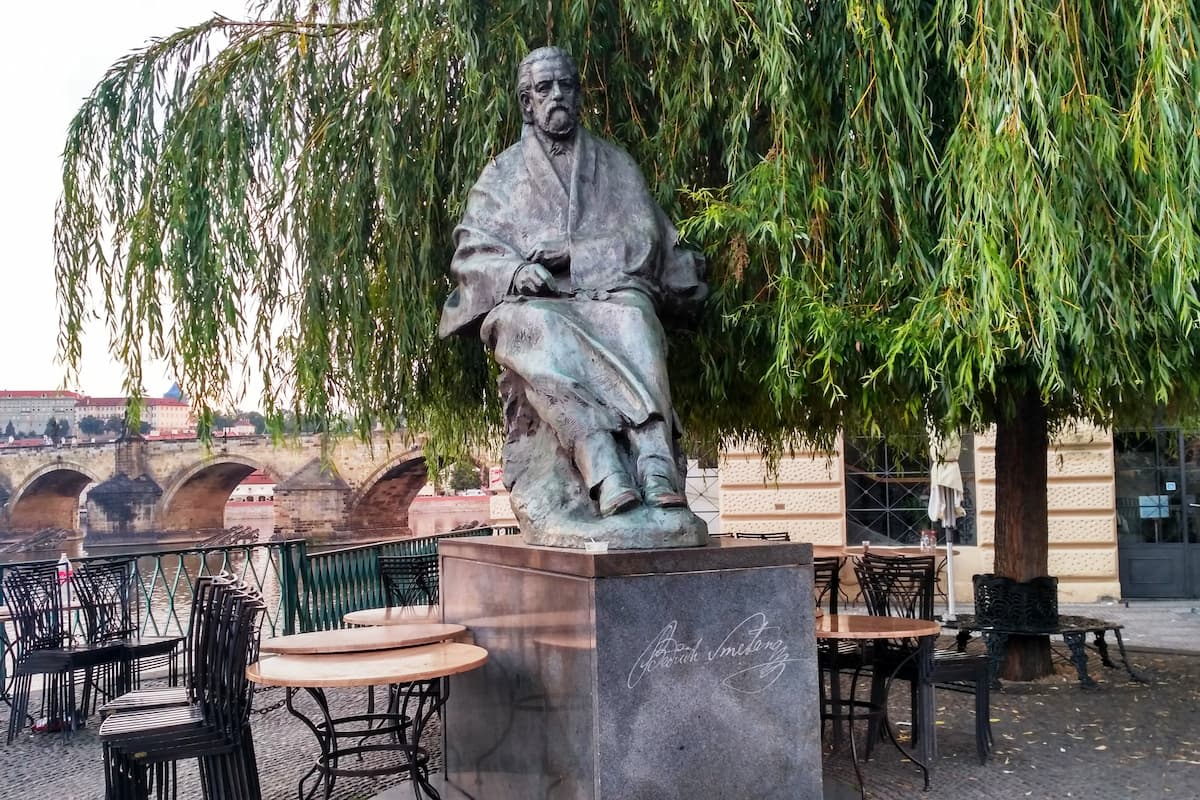
Bedřich Smetana monument in Prague
During his initial years in Prague, Smetana primarily gained recognition through his social engagements. He participated in various musical organisations and established the arts organisation called “Artistic Circle.” He enthusiastically participated in a political movement asserting the autonomy of a uniquely Czech nation, and he dreamt of operas and symphonies based on themes from Czech history and mythology.
Bedřich Smetana: The Brandenburgers in Bohemia, Act III “Ó, kéž bych nikdy z cesty pravé” (Ivan Kusnjer, baritone; Prague Philharmonia; Jiří Bělohlávek, cond.)
Nationalistic Czech Opera
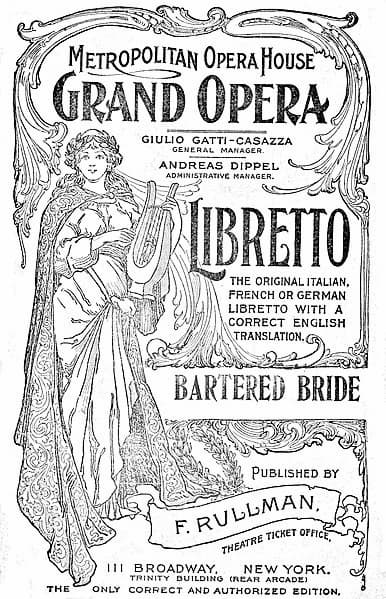
Title page of the libretto of Smetana’s The Bartered Bride (Metropolitan Opera House, 1908)
Smetana proudly proclaimed, “I am Czech in body and soul,” and the establishment of the Provisional Theatre, and later National Theatre, celebrated the autonomy of a unique Czech nation. It was the proving ground to exclusively promote Czech music, and specifically Czech nationalist opera. Nationalistic Czech opera became the genre that defined Smetana’s career, and The Bartered Bride is quintessentially Czech in spirit, full of realistic characters living and loving in a Bohemian village.
The Bartered Bride is the intimate realisation of the composer’s artistic vision. Set in a country village with realistic characters, the spirited heroine has to use all her determination, charm, and cunning to marry the man she loves. It is a joyous celebration of Czech culture and identity, and the distinct rhythmic inflections of the Czech language and Czech folk dances combine irresistibly. Smetana “clearly felt the pulse of peasantry” and the simplicity of the music not only connected to a broad folk base but also proved highly inspirational to the emerging independence movement.
Bedřich Smetana: The Bartered Bride, “Polka”
1874
Over the next couple of years Smetana composed a treasure trove of nationalistic operas, but his conductorship was marked by controversy. A number of high-profile members within the city’s musical establishment considered his identification with the progressive ideas of Liszt and Wagner inimical to the development of a distinctively Czech opera style. Smetana became increasingly distracted from composition, and he was deeply offended when The Bartered Bride was described as a work “no better than that of a gifted fourteen-year-old boy.” And a particularly hostile distractor claimed that under Smetana’s leadership, “Czech opera sickens to death at least once annually.”

Vltava in Prague
If Czech opera was ailing, Smetana was decidedly ill. By October 1874, he had lost all hearing and was profoundly deaf. He sought medical treatment abroad and contemplated suicide. As he wrote in his diary, “If my disease is incurable, then I should prefer to be liberated from this life.” He had resigned from his conducting post, but during his period of worsening health, Smetana continued to compose.
Bedřich Smetana: Tři ženské sbory (3 Female Choruses) (Czech Philharmonic Choir, Prague)
Final Years
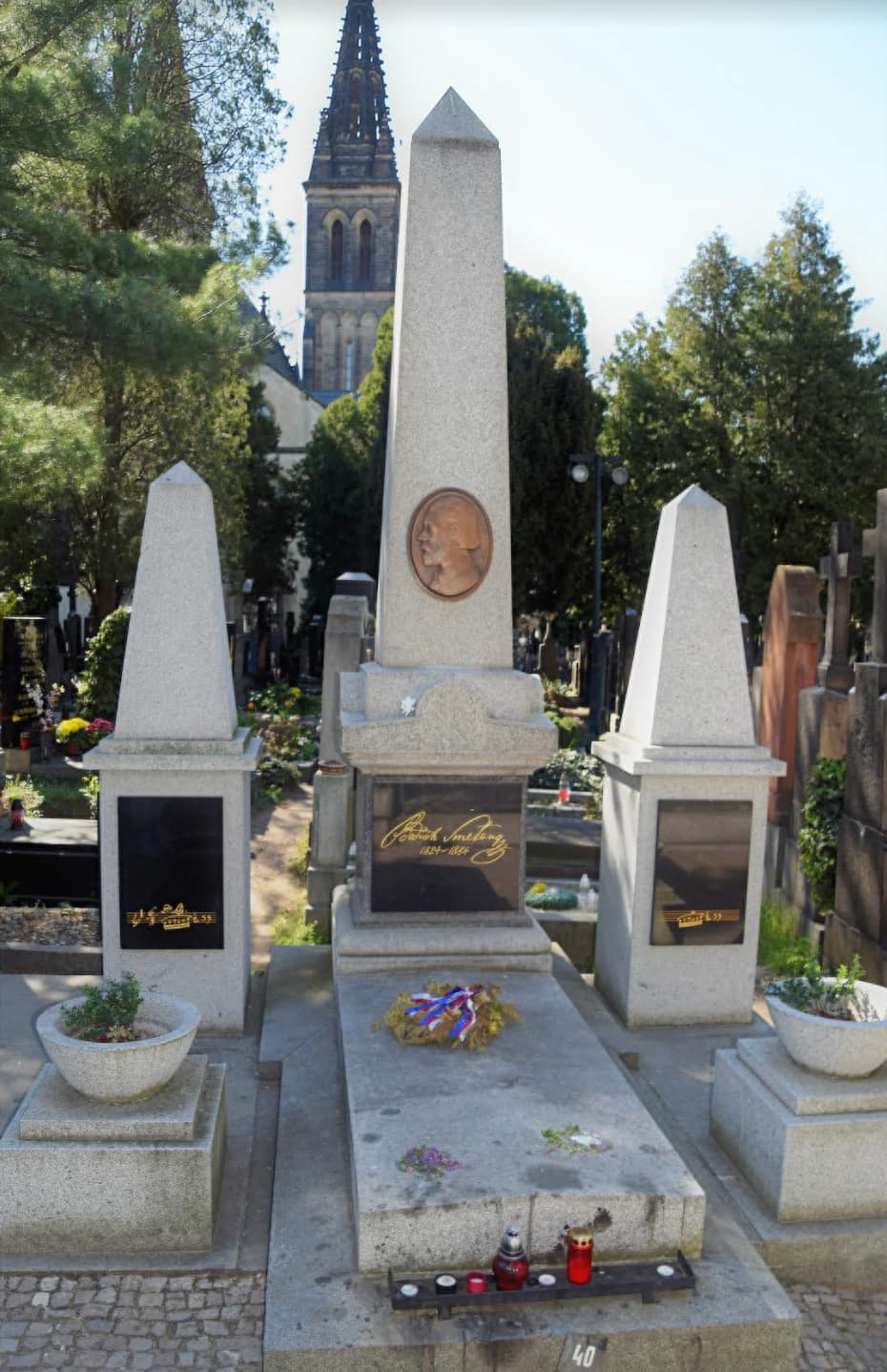
Grave of Smetana
In order to save money, Smetana moved his family from Prague to the rural village of Jabkenice in 1876. Here he completed the first two movements of Má vlast, and wrote the four remaining movements of the cycle over the next five years. He also completed his last three operas and his autobiographical String Quartet No 1, subtitled “From my Life.” In addition, he crafted a series of Czech Dances for the piano, a song cycle, and a number of choruses.
Smetana gradually became recognized as the primary representative of Czech national music. And Smetana was fully aware of the role some of his works had begun to fill. As he wrote in 1882, “I must seek to keep that honourable and glorious position which my compositions have gained for me in my nation and my country. According to my merits and my efforts, I am a Czech composer and the creator of the Czech style in the branches of dramatic and symphonic music – exclusively Czech.”
For more of the best in classical music, sign up for our E-Newsletter




I like the various composers.
The Smetana quartet “From my Life”played by the Dover Quartet is absolutely stunning. It blew me away. As an amateur violist I was of course riveted to the viola part but everything held together and was expressive and emotional. Bravissimo!
I went to Prague last month and I learned about the composer and his vision for his homeland which I learned about when I went to the Národní Museum. I knew of Smetana before but it was this point that he became an interesting image in my musical circle.